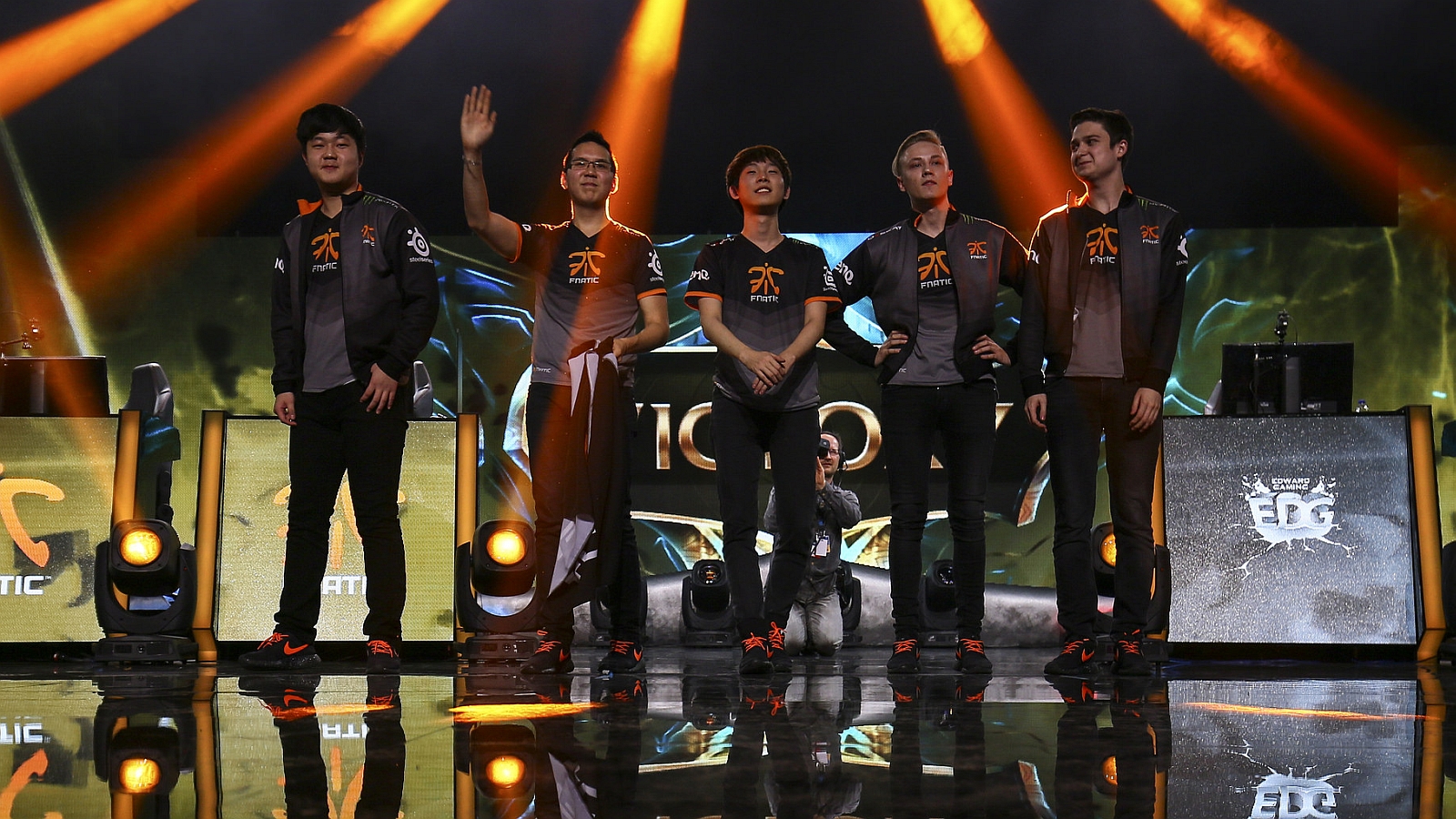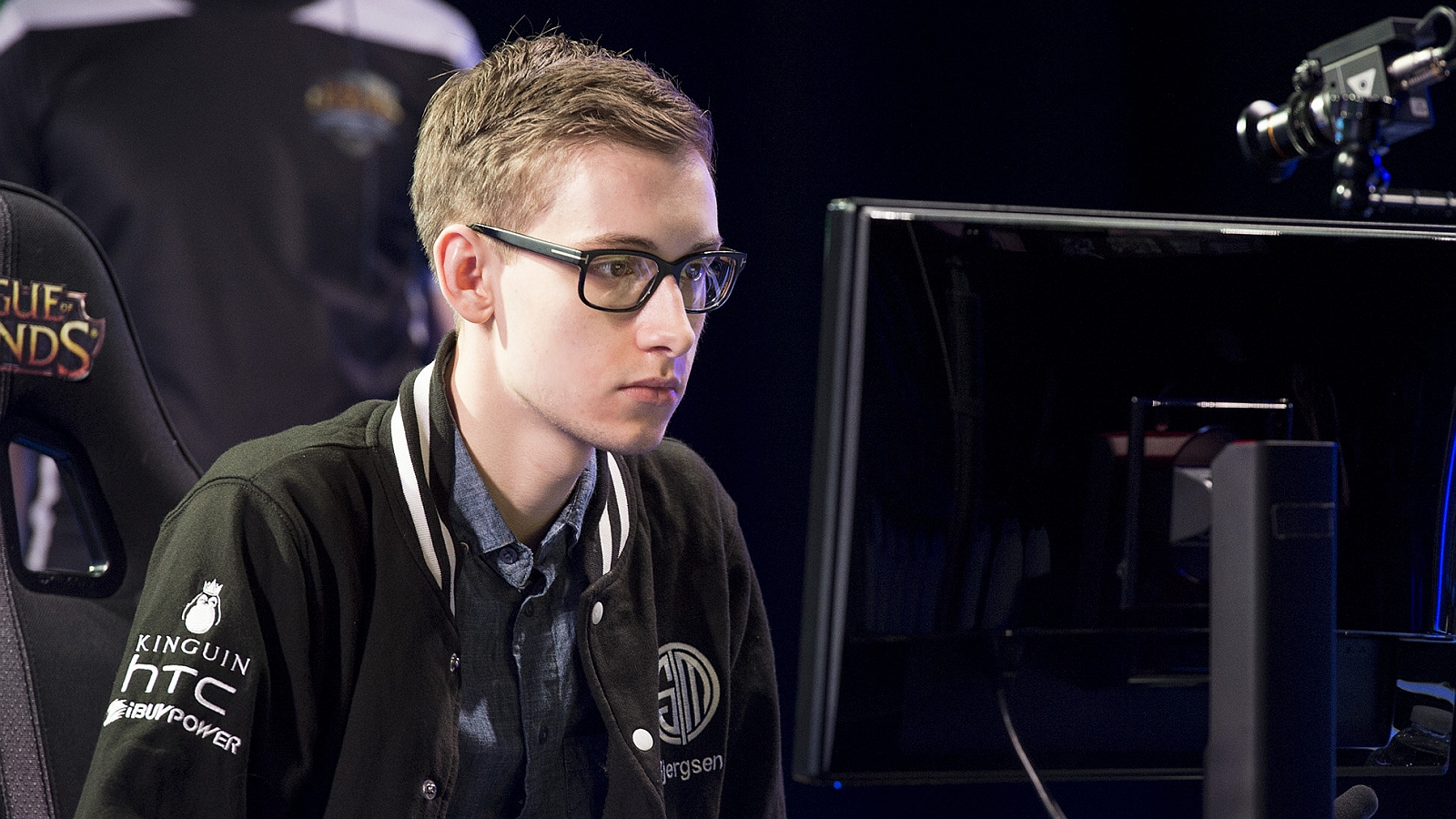The great 2016 North American League of Legends power play

At this point in the preseason, it's tempting to call North America "China Lite." The acquisitions spree has been fierce and unrelenting since the end of Worlds: not just Jin Air's GankedByMom flying over to the land of burgers and apple pies, but seemingly half of the European scene flying over looking for something more than H2K's by-now infamous "5.5 effin' K."
At first glance, this seems like a total collapse of intelligence on part of the teams. Have we learned nothing from Worlds? China seems to be stuck in a rut, throwing hundreds of thousands of dollars into acquiring Korean players despite their horrendous Worlds showing—though Easyhoon's supposed one billion won acquisition by Vici Gaming turned out to be an exaggeration, his departure from the Korean scene is symptomatic of something broader.
Easyhoon might just want a chance to get the crowd to cheer for him for once—life's tough when you're Faker's second, given that even your wins are met by incessant chants for your teammate to come out for the next game. But China, presumably, wants to actually win. Yet there's no indication that they've undergone any cultural or infrastructural shifts since their disastrous Worlds results. There's no reason to believe that the fundamental communications issues that plagued their October efforts have been resolved—or that their scrim culture's been improved in the meantime. Though they're reportedly offering less money per Korean contract this preseason, compared to last, it's still in the mid-six-figure range—and that's still a grossly inefficient expenditure, given that Taiwan's LMS was able to overperform with a combined budget for both playoff teams that amounted to a fraction of Easyhoon's rumored salary.
The common wisdom post-Worlds is that money can't buy success. Without dedicated and enthusiastic scrim partners, without strong internal chemistry, and without proper analysis and coaching, you just have five solo-queue warriors speaking two languages confusing each other as the lean, mean, Korean machine takes them apart on the international killing floor—again. Teams should be looking locally, rather than abroad, for talents to foster and train—an approach exemplified by Taiwan, who's set up farm teams and trainee programs while their own Korean recruits dejectedly return home after showing only middling results (with the exception of support player Olleh, formerly of Brazil's CBLoL. Olleh rocks).
At first glance, North America's repeating China's mistake with their rash of imports. At second glance, however, it's starting to look as if North America's pulled off a coup.

Reign over the West
What's the difference between importing Svenskeren, Huni, Reignover and Yellowstar, compared to buying out all of Samsung White and Blue? The 2014 World Champions might be considered the best team that South Korea has ever fielded, but their individual performances in the China LPL can only be described as disappointing. Dandy went top lane, for goodness sake—as counter-logic as CLG picking up Nientonsoh for the same position after his successful stints as a carry player on multiple teams. General Dade went full retirement mode too, and the best-performing Korea-to-China transplant at Worlds ended up being Flame—who was merely a substitute, and wasn't nearly enough to cover up LGD's collapse.
Yet there's evidence aplenty to believe that the situation is drastically different for EU-to-NA transfers. And the evidence has names. Soren Bjerg and Nicolaj Jensen, in particular—Bjergsen and Incarnati0n of TSM and Cloud 9 respectively. The two are possibly the very best players in the entire North American region, and Bjergsen in particular has been an absolute standout even as TSM floundered near the end of the year. It took multiple jungler and support switch-outs before the team was finally too heavy for him to solo-carry, but it was never a language barrier that held TSM or C9 back at the end of the year.
Keep up to date with the most important stories and the best deals, as picked by the PC Gamer team.
Not that language barriers are going to be much of an issue for EU players in general, as they're uniquely conditioned to work around it—primarily with English as the bridge. There are few EU players with English as their first language, but even Huni's fluent enough for the sake of teamplay integrity. The fact that he's presumably part of a package deal with the multilingually-talented Reignover only helps.
As such, the EU-to-NA transfer should provide only trivial barriers compared to the total linguistic block of its eastern equivalent. And on top of that, NA's pumping money into more than player contracts—they're buying out proven and capable coaches and analysts too, at a sharp contrast to their lackadaisical approach in the last couple years. Background support positions are now seen as a necessity to success, not merely a Riot-mandated roster requirement (and, unspoken but acknowledged in side-chat whispers, an affront to players' formerly-unquestioned expertise and intellect). That shift in attitude is at the core of the infrastructural differences between western and eastern esports organizations.
After getting slapped across the face at Worlds, with none of their teams advancing to the playoffs, it's probably hard for North American League of Legends fans to hold out on hope for international relevance. Not after so many years of the Korean juggernaut making their most popular teams and personalities look like rank amateurs. But though it took many years and the shoving out of scene veterans by (much) richer businessmen, the scene is set for a very interesting 2016.

PC Gamer Pro is dedicated to esports and competitive gaming. Check back every day for exciting, fun and informative articles about League of Legends, Dota 2, Hearthstone, CS:GO and more. GL HF!

